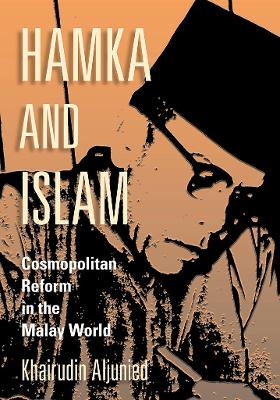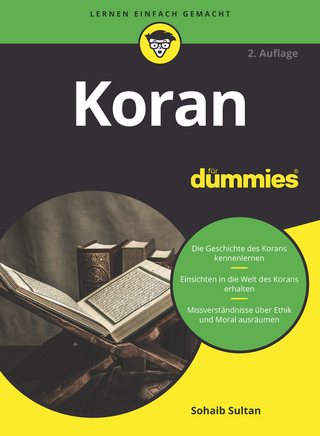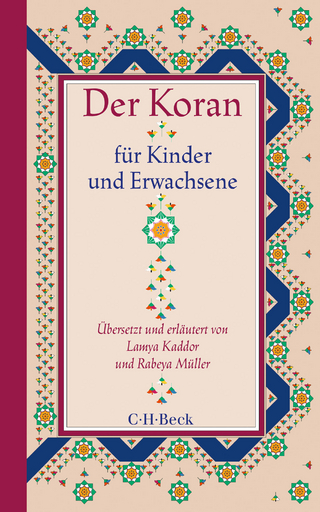
Hamka and Islam
Cosmopolitan Reform in the Malay World
Seiten
2018
Southeast Asia Program Publications, Cornell University (Verlag)
978-1-5017-2457-2 (ISBN)
Southeast Asia Program Publications, Cornell University (Verlag)
978-1-5017-2457-2 (ISBN)
Since the early twentieth century, Muslim reformers have been campaigning for a total transformation of the ways in which Islam is imagined in the Malay world. One of the most influential is the author Haji Abdul Malik bin Abdul Karim Amrullah, commonly known as Hamka.In Hamka and Islam, Khairudin Aljunied employs the term "cosmopolitan reform"...
Since the early twentieth century, Muslim reformers have been campaigning for a total transformation of the ways in which Islam is imagined in the Malay world. One of the most influential is the author Haji Abdul Malik bin Abdul Karim Amrullah, commonly known as Hamka.
In Hamka and Islam, Khairudin Aljunied employs the term "cosmopolitan reform" to describe Hamka's attempt to harmonize the many streams of Islamic and Western thought while posing solutions to the various challenges facing Muslims. Among the major themes Aljunied explores are reason and revelation, moderation and extremism, social justice, the state of women in society, and Sufism in the modern age, as well as the importance of history in reforming the minds of modern Muslims.Aljunied argues that Hamka demonstrated intellectual openness and inclusiveness toward a whole range of thoughts and philosophies to develop his own vocabulary of reform, attesting to Hamka's unique ability to function as a conduit for competing Islamic and secular groups.
Hamka and Islam pushes the boundaries of the expanding literature on Muslim reformism and reformist thinkers by grounding its analysis within the Malay experience and by using the concept of cosmopolitan reform in a new context.
Since the early twentieth century, Muslim reformers have been campaigning for a total transformation of the ways in which Islam is imagined in the Malay world. One of the most influential is the author Haji Abdul Malik bin Abdul Karim Amrullah, commonly known as Hamka.
In Hamka and Islam, Khairudin Aljunied employs the term "cosmopolitan reform" to describe Hamka's attempt to harmonize the many streams of Islamic and Western thought while posing solutions to the various challenges facing Muslims. Among the major themes Aljunied explores are reason and revelation, moderation and extremism, social justice, the state of women in society, and Sufism in the modern age, as well as the importance of history in reforming the minds of modern Muslims.Aljunied argues that Hamka demonstrated intellectual openness and inclusiveness toward a whole range of thoughts and philosophies to develop his own vocabulary of reform, attesting to Hamka's unique ability to function as a conduit for competing Islamic and secular groups.
Hamka and Islam pushes the boundaries of the expanding literature on Muslim reformism and reformist thinkers by grounding its analysis within the Malay experience and by using the concept of cosmopolitan reform in a new context.
Khairudin Aljunied is an Associate Professor in the Faculty of Arts and Social Sciences, National University of Singapore. He was Malaysia Chair of Islam in Southeast Asia (2017–2018) and is Senior Fellow at the Prince Alwaleed bin Talal Center for Muslim-Christian Understanding, Georgetown University.
Introduction: Hamka's Cosmopolitan Reform
1. Of Reason and Revelation
2. In Praise of Moderation
3. Muslims and Social Justice
4. Women in the Malay World
5. Restoring Sufism in the Modern Age
6. History as a Tool of Reform
Conclusion: Thinking with Hamka
| Erscheinungsdatum | 12.09.2018 |
|---|---|
| Zusatzinfo | 7 Halftones, black and white |
| Verlagsort | Ithaca |
| Sprache | englisch |
| Maße | 178 x 254 mm |
| Gewicht | 454 g |
| Themenwelt | Geisteswissenschaften ► Religion / Theologie ► Islam |
| ISBN-10 | 1-5017-2457-6 / 1501724576 |
| ISBN-13 | 978-1-5017-2457-2 / 9781501724572 |
| Zustand | Neuware |
| Haben Sie eine Frage zum Produkt? |
Mehr entdecken
aus dem Bereich
aus dem Bereich


